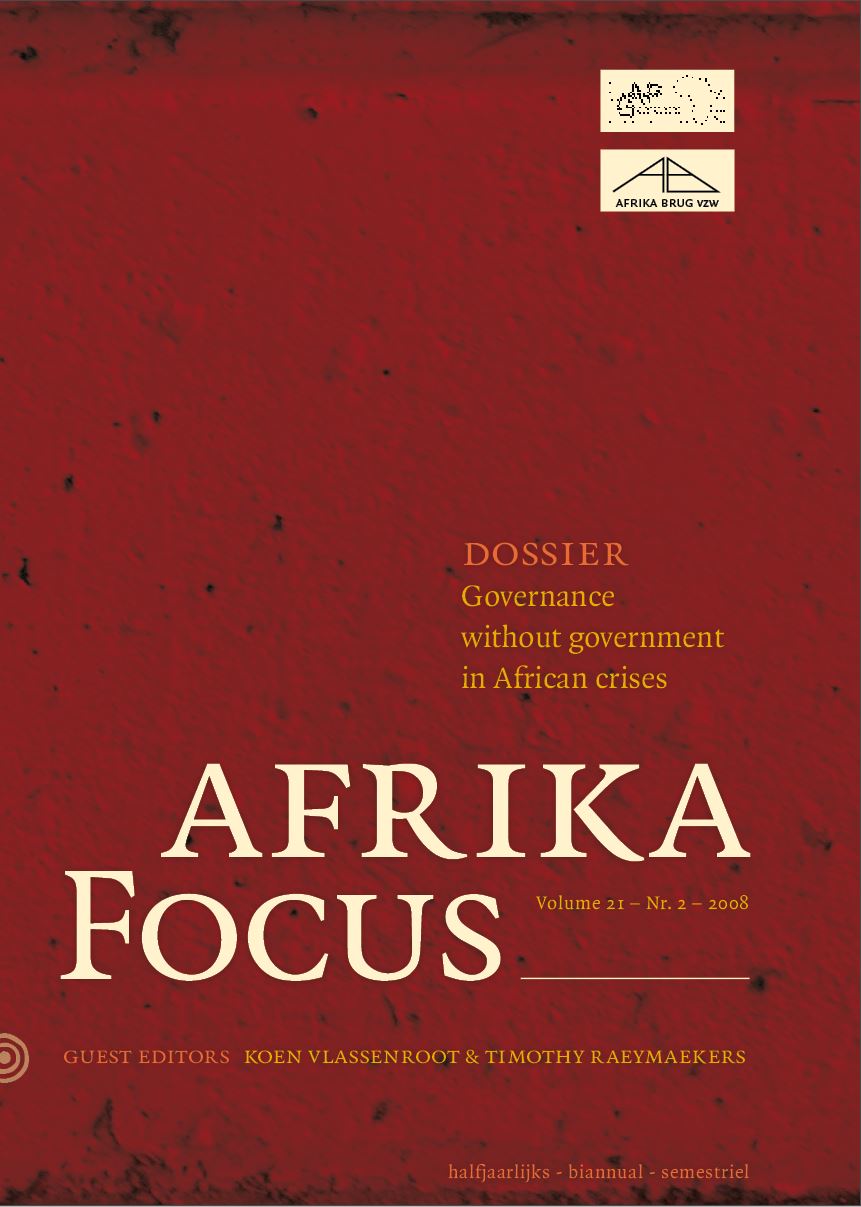Governance, violence and the struggle for economic regulation in South Sudan: the case of Budi County (Eastern Equatoria)
DOI:
https://doi.org/10.21825/af.v21i2.5044Abstract
This article analyses how Budi County in Eastern Equatoria State (South Sudan) was governed during the 1990s and up to mid-2007. Because its capital Chukudum was the SPLM/A headquarters almost throughout that period, it provides us with an interesting case from which to explore how the SPLM/A governed during the war and how this impacts on the post-war peace. One observation is that the war, besides a period of devastation and human suffering, was also a time of economic opportunities and social differentiation. For that reason this article will also explore livestock trade as a new mode of wealth appropriation and the changing nature of cattle raiding, and how this interferes with the struggle for regulatory power and governable “spaces”. This means that we comprehend the economy as a political terrain. At the same time we leave room for sociological perspectives, to complement the more restricted “competition for resources and gains” approach to conflict and violence. The article is written in three sections. In the first section we briefly clarify why in 1999 there was an uprising in Budi County against SPLM/A rule and why it engendered massive local support. In the second section we examine one of the most destructive manifestations of violence that affect Budi county: cattle raiding. We look at it from a perspective that has been under-researched in the eld: that of trans-border trade. In the last section we look at how, after the peace of 2005, newly appointed local government authorities are (re)claiming do- mains of state regulation that previously lay rmly in the hands of the military. Particular attention is given to the capacity of the local authorities to guarantee security and provide protection. Key words: governance, violent conflict, regulatory power, trans-border trade, South Sudan Eastern EquatoriaDownloads
Published
How to Cite
Issue
Section
License
Authors who publish with this journal agree to the following terms
Authors retain copyright and grant the journal right of first publication with the work simultaneously licensed under a Creative Commons Attribution License that allows others to share the work with an acknowledgement of the work's authorship and initial publication in this journal.
Authors are able to enter into separate, additional contractual arrangements for the non-exclusive distribution of the journal's published version of the work (e.g., post it to an institutional repository or publish it in a book), with an acknowledgement of its initial publication in this journal.
Authors are permitted and encouraged to post their work online (e.g., in institutional repositories or on their website) prior to and during the submission process, as it can lead to productive exchanges, as well as earlier and greater citation of published work (See The Effect of Open Access).


